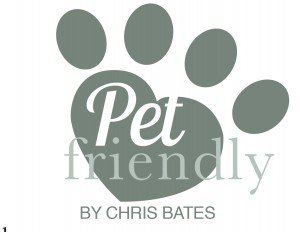 As a professional pet sitter and dog walker, my daily routine usually revolves around dogs, cats and an occasional fish tank. In the past month, however, I’ve run into several pet families whose companions include finches and parrots. With our recent cold weather, I’ve also been exposed to lots of outdoor birds visiting our regularly filled feeders, which allows me to watch them more closely for longer periods of time. So, for this edition of Pet Friendly I’ll open a new chapter and talk about some of the realities of keeping birds as house pets.
As a professional pet sitter and dog walker, my daily routine usually revolves around dogs, cats and an occasional fish tank. In the past month, however, I’ve run into several pet families whose companions include finches and parrots. With our recent cold weather, I’ve also been exposed to lots of outdoor birds visiting our regularly filled feeders, which allows me to watch them more closely for longer periods of time. So, for this edition of Pet Friendly I’ll open a new chapter and talk about some of the realities of keeping birds as house pets.
I’ll admit to a bias up front: I am a closet bird lover, though my experience mostly involves wild birds that I enjoy watching from my kitchen, family room and living room virtually every day of the week. Birds, like people, are generally very social, whether in the wild or in a home. This means they are verbal and often much smarter than the size of their heads might lead us to believe! Much of what we understand about parrots and other birds is evolving quickly, so a bird pet companion will provide you with an ongoing learning opportunity.
First, let’s briefly dispel some common myths that are associated with parrots and other “exotic” birds.
Myth 1: Parrots Scream. In the wild, parrots do not need to make loud repetitive noises to attract attention. However, as pet owners we may inadvertently encourage parrots to scream by responding to their repetitive calls for attention with negative reinforcement: our own loud voice saying “hush!” It’s better to teach them more acceptable ways to attract your attention, such as to ring a small bell or speak a specific word.
Myth 2: Parrots Bite. Birds, like many animals, have their own body language that signals anger or fear and warns another of the same species to back off or leave. Inexperienced bird owners or their visiting friends may not see or understand a pet bird’s body language. Bird bites often occur when someone has failed to read this body language properly or a bird has been conditioned to believe that visitors will ignore its body language, so it should bite preemptively.
Myth 3: Parrots are Messy. By our standards and looking at the bottom of their cages, this statement may be more fact than myth, but it lacks context. Since they live in the wild by cracking seeds and shells, stripping bark and foraging through foliage, we should not be surprised that parrots and other birds make a “mess” when eating or playing in their cage. This situation can be managed by ensuring your bird has appropriate toys to engage its beak and feet. Setting up larger, safe play areas in your home outside of their cage also is highly recommended.
Let’s now focus on some interesting realities about bird ownership that can help make their residence in our homes a genuine pleasure:
Chris Bates is the founder of Top Choice Pet Care LLC (www.topchoicepetcare.com), which provides affordable, loving and reliable dog walking, pet sitting and other pet services to the Bristow, Gainesville, Haymarket, Manassas and Nokesville communities. A farmer’s son, life-long animal lover and pet owner, Chris is a Certified Professional Pet Sitter (CPPS) through Pet Sitters International and is PetSaver™ trained in pet first aid and CPR.
Support Bristow Beat - Donate Today!